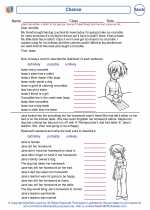Theoretical Probability
Theoretical probability is the likelihood of an event occurring based on all the possible outcomes. It is calculated by determining the ratio of the number of favorable outcomes to the total number of possible outcomes.
Formula for Theoretical Probability
The formula for theoretical probability is:
P(E) = Number of favorable outcomes / Total number of possible outcomes
Where:
- P(E) = Theoretical probability of event E
- Number of favorable outcomes = The number of outcomes that make the event favorable
- Total number of possible outcomes = The total number of outcomes in the sample space
Example
Let's say we have a standard six-sided die. The theoretical probability of rolling a 3 is:
P(rolling a 3) = 1 (there is 1 favorable outcome - rolling a 3) / 6 (there are 6 possible outcomes when rolling a die)
So, the theoretical probability of rolling a 3 is 1/6 or approximately 0.1667.
Conclusion
Theoretical probability provides a way to predict the likelihood of an event occurring based on the underlying principles of probability. It is an important concept in mathematics and is used in various real-life situations to make informed decisions.
[Theoretical Probability] Related Worksheets and Study Guides:
.◂Math Worksheets and Study Guides Second Grade. Probability

 Worksheet/Answer key
Worksheet/Answer key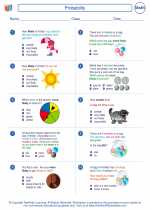
 Worksheet/Answer key
Worksheet/Answer key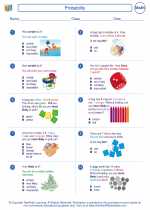
 Worksheet/Answer key
Worksheet/Answer key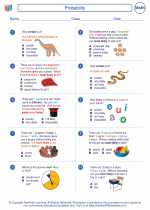
 Worksheet/Answer key
Worksheet/Answer key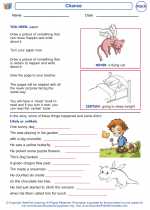
 Worksheet/Answer key
Worksheet/Answer key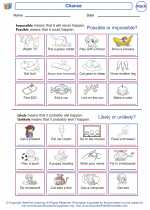
 Worksheet/Answer key
Worksheet/Answer key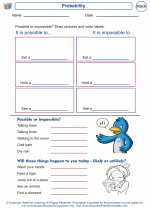
 Worksheet/Answer key
Worksheet/Answer key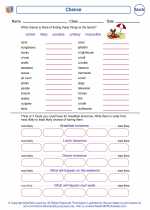
 Worksheet/Answer key
Worksheet/Answer key